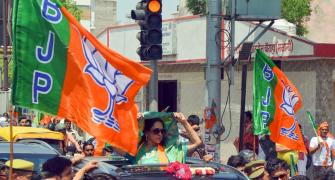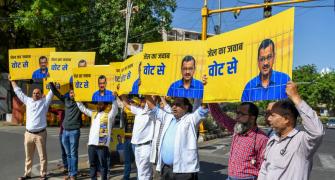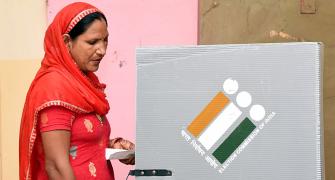Malls, commercial spaces and residential buildings coming up in Mumbai have found a novel way to save themselves from the power cuts under which the city is reeling.
Property developers are setting up their own mini-power plants to meet captive requirements of the malls or residential complexes they are building.
Electricity generated from these power plants, which will use compressed natural gas (CNG) as fuel, will be 40 per cent cheaper than state electricity board supplies, making it an attractive investment option rather than a perceived additional cost.
Companies that are looking at this arrangement in Mumbai include DLF's Mall in Lower Parel, Royal Palms' IT SEZ in Goregaon and DB Realty's mall in Dahisar.
Although the power shortage in Mumbai has dropped from 5,000 Mw a fortnight ago to 3,000 Mw, the suburbs (central Mumbai and Navi Mumbai) continue to face between three and seven hours of power cuts a day. Malls and software firms have been asked to lower consumption by at least 20 per cent.
Unlike back-up plants, which are known as large UPS, these mini-power plants will be the main source of electricity for the malls or residential complexes; energy drawn from state electricity boards will be the back-up option.
"We will be doing this project on pilot basis in Pune, but will extend it to our chain of malls when it is ready. The capacity will be 5 Mw to begin with and we will scale it up later," said a source from Market City.
Players like Royal Palms are in talks with Mahanagar Gas in Mumbai for gas supply to their captive power generation unit.
Royal Palms, which is developing a 5-million square feet IT SEZ in Goregaon, will have a 40-Mw power-generation unit on the premises. The company is setting up the unit at the cost of Rs 50 crore (Rs 500 million), scheduled for commissioning in 2009.
"Five years ago, the power shortage in Mumbai was not as acute as it is now. Since we will be having IT and BPO companies on the premises, we need un-interrupted power supply throughout," said Dilawar Nensey, joint managing director, Park Plaza, Royal Palms, Mumbai.
"We pay Rs 7.50 per unit of electricity to the Maharashtra State Electricity Board. Our own power generation unit will cost us only Rs 4.50 per unit, which works out around 40 per cent cheaper," he added.
"Landlords are thinking of reducing the outgoing costs of the retailers in the malls. Even if the retailers can save Rs 2 per day on consumption of 5,000 units of electricity, they can save Rs 10,000 per day and Rs 3 lakh per month. Thus, more and more malls are looking at having a captive power unit on the premises," according to Bappaditya Basu, associate director, retail, Jones Lang LaSalle Meghraj.
"This concept is relevant for the shopping malls and commercial spaces in the city. Malls are considered to be indulging in unwarranted commercial electricity consumption, and commercial establishments can save themselves from power cuts," said an analyst.
He added that with the increase in the number of malls and shopping complexes, there has been a steep rise in demand for electricity by almost 10 per cent over the last year.
Malls and commercial establishments in Mumbai pay between Rs 6 and Rs 9 per unit to the state and private electricity boards.
"Diesel costs Rs 38.93 per litre in Mumbai, but CNG costs only 21.70 per kg, so it is almost 45 per cent cheaper for companies to generate power from gas than diesel," said P K Gupta, managing director, Mahanagar Gas Ltd.
He added that the surge in demand and the assurance of long-term gas supplies in view of the new explorations taking place should address the issues of reliability and quality of power.
Mahanagar Gas will supply gas to these players through its existing network of CNG pipelines.
Captive power plants also do not require sanction under the Electricity Act 2003.
<B><font color="#000099">The power of waste</font></B>
In other cities, realtors are looking at power generation from waste. DLF's mall in Delhi and Market City in Pune are, in fact, exploring ways of generating captive power through waste material.
While DLF Ltd, India's largest real estate company by market capitalisation, will be using waste plastic to generate electricity, Market City will be using the waste generated in its malls for the same.








